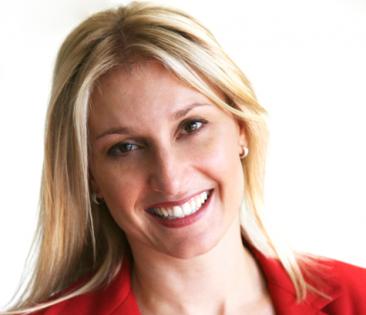We all recognise it when we read or hear the single word attached to an insidious form of skin cancer – melanoma.
In 20-34 year olds melanoma kills more young Australians than any other single cancer.
Most melanomas are relatively easily treated if found early. But once they have spread from the skin, treatment becomes far more intensive and survival rates plummet.
In addition, the chances of a melanoma recurring 10 or 20 years down the track are worryingly high, at which point it may have spread to the lungs, liver or brain.
That’s why I think it’s important for me to highlight to our Motherpedia readers the impact of melanoma and to let you know that much of our work here at Centenary focuses on finding better ways to treat cancer, giving hope to patients and their families following the trauma of diagnosis.
Our melanoma research team led by Professor Wolfgang Weninger, has been focussing on how our immune system helps us fight cancer. The team’s research is being advanced by an impressive piece of equipment known as a multi-photon microscope, which allows them to see how immune cells and melanoma cells work in real time.
Like most cancers, melanoma doesn’t discriminate. Anyone can get it, but over-exposure to the sun certainly doesn’t help. So as Australians, we need to be particularly vigilant.
Unfortunately, more than 12,000 new cases of melanoma are diagnosed in Australia each year and over 1,500 Australians die annually as a result of melanoma.
Most of these deaths will be from advanced melanomas or secondary cancers where the melanoma has recurred, sometimes many years after the initial diagnosis.
In our latest appeal I told the story of Nicole – a young melanoma survivor and I share with you a little of that story.
As a young mum with two boys and a husband, Nicole knew she had so much to live for.
After a visit to her dermatologist for a mole considered “probably to be nothing serious” Nicole received a call the next day from the dermatologist who gave her the diagnosis – a very serious and aggressive melanoma.
When Nicole met with the surgeon she recalls, “He started to explain what he needed to do and I remember thinking I’d somehow drifted into a scary movie and I was in the lead role…”
Nicole underwent extensive surgery for the removal of the melanoma and three lymph nodes. After the surgery she began intensive treatment with a drug called interferon. She was on a high dosage, which was given to her by drip over a four-hour period every day in the chemotherapy ward at Royal Prince Alfred Hospital in Sydney.
The drug took a real toll on Nicole’s body. Even after the first day she felt nauseous and could hardly stand up, so she had to go straight home to bed. It was the start of the school holidays. “My youngest was only five at the time and I thought, I’m not doing this, I’m not going to be a victim.”
Believe it or not, Nicole was one of the lucky ones. Until recently there was no effective treatment for advanced melanoma, and unfortunately even the new treatment only works on some people. This is where exciting research projects here at the Centenary Institute are so vital in giving hope to melanoma patients.
Nicole has let me share her story with you, in the hope that it will help raise both awareness of melanoma and money for research into this and other cancers.
“I was one of the truly lucky ones. My melanoma was very advanced and my chance of surviving was only 5%. Research is so vital. Without it my boys wouldn’t have their mother. We all know someone who has had some form of cancer. There are wonderful doctors and scientists looking for answers, but I know it takes time and money to find them and that’s why I am happy to support the Centenary Institute and their research” says Nicole who is now healthy and well.
My promise to you and your family is that our researchers will remain committed to healthier, longer lives for us all through their medical research. I urge you to remain vigilant in monitoring your family for signs of changes to their skin to ensure early detection of melanoma.
Remember to visit our website www.centenary.org.aufor all our latest news and to make an invaluable donation that will contribute to helping us make melanoma less scary.



















__small.png)










